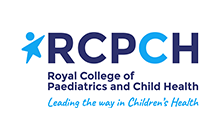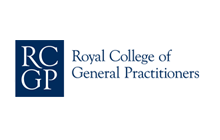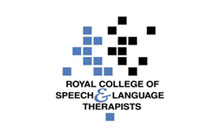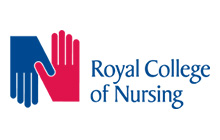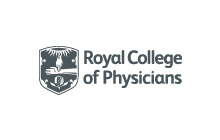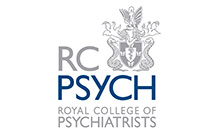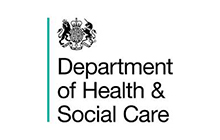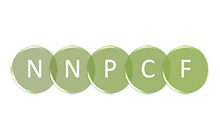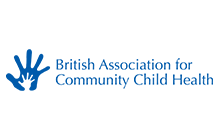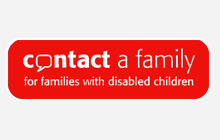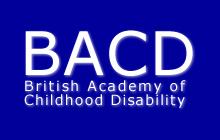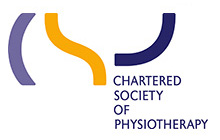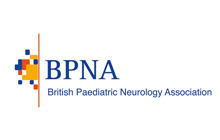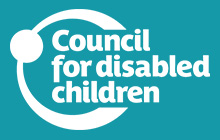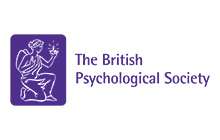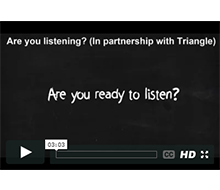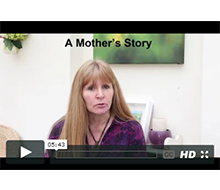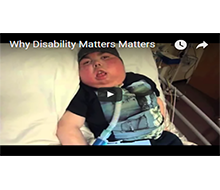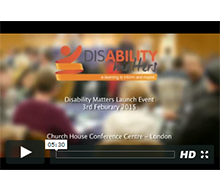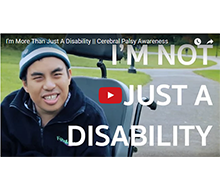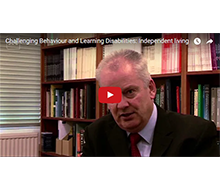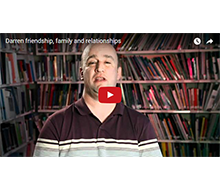About the Disability Matters programme
Disability Matters is a free elearning resource for the UK workforce.
It consists of three programmes:
- Disability Matters: all Disability Matters elearning sessions
- Disability Matters Learning Packages: elearning sessions that have been grouped together to meet particular learning needs.
- Disability Matters Resources: Face-to-face training resource packs
You can download an easy read overview of the programme by clicking on Disability Matters Easy Read Overview.
These young people have something to say.
-
Are you listening?
Are you listening?
-
A parent’s perspective
“See the world in a better way”
A parent’s perspective
-
Why Disability Matters Matters
A Poem by AdsthePoet
Why Disability Matters Matters
-
Disability Matters – the launch event 3rd February 2015
Making an empowering world for disabled people
Disability Matters – the launch event 3rd February 2015
-
What is Disability Matters?
What is Disability Matters?
Launched in February 2015, Disability Matters is an innovative suite of free resources to support those who work, volunteer or engage with disabled children and young people (from 0 to 25 years) and their families. It seeks to address the barriers that make society disabling. These challenges are faced by those with either physical and/or intellectual disabilities.
Developed by disabled young people, parent carers and other experts, Disability Matters arranges individual modules into helpful bite-sized learning packages so that the training offered matches the needs of specific individuals, groups, organisations and sectors. It offers practical advice about supporting disabled children, young people and their families to achieve the outcomes that matter to them.
Our Aims:
•To raise the profile of disability within the UK and internationally.
•To increase awareness of the issues that affect the everyday lives of disabled children, young people and their families.
•To help people who work, volunteer or engage with disabled young people identify creative and practical ways to overcome the social barriers that challenge them in their everyday lives.
•To equip those who work, volunteer or engage with disabled young people to support them as effectively as they can to achieve what matters most to them.
•To help employers to improve the ways in which they work with and respond to disabled young people and their families by supporting their workforce – both paid and voluntary – to implement creative solutions to identifiable barriers.
Disability Matters is designed to support organisations, services, workers and volunteers across a range of sectors to develop the communication and problem-solving skills required to engage confidently with disabled children and young people, to hear what they tell us that they need and to respond positively, warmly and with an inclusive welcome.
Through words, pictures and signs, disabled children, young people and their families challenge us all to reflect on our own attitudes and beliefs. There are practical tips for us all. Together we can make a positive difference that matters.
We are proud to work in partnership with disabled children, young people and parent carers to bring messages for those working in the following sectors:
-
How to use Disability Matters
How to use Disability Matters
Disability Matters offers online learning sessions (mostly 20-40 minutes) on a wide range of topics to help people reflect, challenge and change their own fears, idea, attitudes, beliefs and behaviours towards disabled people.
All the sessions can be completed as a ‘one off’ or ‘stand-alone’. Alternatively, you can sign up to the Disability Matters learning community and complete several sessions or a Learning Package that can be recorded in a personal learning account. Creating an account allows you to keep a record of your learning and to print certificates to evidence your learning.
The more actively you reflect on the stories and materials in Disability Matters, the better equipped you will become to welcome, include, empower and support disabled children and people of all ages.
-
Why do we need Disability Matters?
Why do we need Disability Matters?
Disabled children and young people (from 0 to 25 years) and their families face many barriers in their everyday lives; from social events and sports to accessing health services and coping at school, college or work. To bring about the changes we think will make a positive, practical and lasting difference, we need to help those who work, volunteer or engage with disabled children and young people to gain confidence they need to be as effective as they can and want to be.
The challenge facing society today
Here are some statistics that show why we need Disability Matters:
- 70% of workers in the UK feel they need to learn more about disability for their work
- 61% of people in the UK say they are not confident communicating with a child who is disabled
- 80% of people in the UK think business organisations should provide more training to ensure their staff feel confident about working with disabled people
- 180 disability hate crimes are committed every day in the UK
We believe that people across the UK are looking to change society for the better on disability. Disability Matters wants to make a significant contribution to the way in which the UK challenges current attitudes, fears and insecurities about disability. Disabled children and young people, their families, friends and other carers should receive the support they need on the issues that matter to them.
-
Who will find Disability Matters helpful?
Who will find Disability Matters helpful?
Disability Matters provides employers, staff and volunteers across the UK and internationally with free access to a suite of high quality online and group learning resources covering a broad range of topics related to disability.
We want to engage with individuals and organisations in all of these sectors and groups to help effect positive and lasting social change:
- Health
- Social care
- Education
- Employment
- Charities and advocacy groups
- Youth, community and faith groups
- Criminal justice
- Transport and travel
- Retail
- Arts, leisure, recreation and sport
- Family, friends and other carers
-
Top 10 benefits for individuals
Top 10 benefits for individuals
- Increased awareness and understanding of disability
- Confidence to tackle challenging situations positively by identifying and using creative problem solving skills and techniques
- Developed by disabled young people, family carers and other experts
- Credible, high quality learning resources to challenge and inspire
- Supported by a consortium of well-respected partner organisations
- Easy to use: with stand-alone modules that can be grouped for their relevance to you and your situation
- A range of real life case studies are used to inform your learning
- Flexible approach with online or face to face learning opportunities
- Free to register and learn
- Certificates can be printed as proof of completion.
-
Top 10 benefits for organisations
Top 10 benefits for organisations
- Help to ensure that your organisation meets the needs of disabled people who work, volunteer or are members of your organisation
- Increase awareness and understanding of disability among your paid and volunteer workforce
- Improve the ability of your organisation to respond positively to those disabled children and young people (from 0 to 25 years) and their family carers who are your service users, clients or customers
- Help those who work or volunteer with your organisation to achieve even better levels of customer care
- Ensure that your organisation meets established industry standards for training on disability
- Flexible approach: learning packages can be delivered as an online resource to guarantee consistency across your organisation regardless of the geographical spread of your workforce or as face to face training for groups based in a single location
- Provide those who work or volunteer for your organisation with credible high quality learning resources
- Developed by disabled young people, family carers and other experts and supported by a consortium of well-respected partner organisations
- Easy to use with off the shelf learning packages as well as the ability for us to build a learning package that meets the specific needs of your organisation
- Help to encourage and drive positive sector wide change to help support disabled children, young people and family carers to achieve what matters to them.
-
What do our learners say about Disability Matters?
What do our learners say about Disability Matters?
84% of learners say Disability Matters was helpful or very helpful*
77% of learners say Disability Matters boosted their confidence*
Testimonials since Disability Matters launched in February 2015
“Useful and interesting content. Well-presented and easy to navigate.”
“Eye opening and empowering.”
“It has made me consider how I should listen.”
“Made me think about my choice of words and helped increase confidence in asking and talking about conditions.”
“Excellent! This module shows that impairment doesn’t need to disable you.”
“I have never had the confidence to work with children with certain hidden disabilities because I didn’t have the knowledge or skills. These short elearning sessions are very good and I can’t wait to do some more next week. Thank you for a wonderful resource.”
“Really useful to hear from young people and their families about their experiences.”
*Figures quoted were correct as of August 2015
-
Disability Matters for Medical Students
Disability Matters for Medical Students
Have you learnt about disability at medical school but feel apprehensive to put your knowledge into practice? Have you revised the associated medical conditions, yet are concerned that you will not be able to appropriately offer healthcare services to disabled people?
This elearning package, co-authored by specialists, disabled young people and their families, provides valuable insight and practical advice to enhance your confidence and competence in disability medicine. Topics include appreciating the importance of diagnosis, using the correct terminology, recognising hidden disabilities and how to avoid diagnostic overshadowing.
Reflection is integrated throughout, encouraging you to envisage how you will use this acquired awareness and knowledge to improve your current and future care and hence translate theory into practice.
- What is disability
- Reflection matters
- Hidden disabilities matter
- Diagnosis matters
- Rights matter
- Learning disability matters
- Complex conditions matter
- Equal access to the best outcomes
Elizabeth Lawson is a fourth year medical student at the University of Leeds.
‘Why I recommend Disability Matters resources as an adjunct to the medical school curriculum‘
Learning packages
60 sessions may be overwhelming all at once, so there are a number of ways to sample what Disability Matters has to offer.
A learning package is a group of Disability Matters elearning sessions that have been grouped together to form a bundle of learning that meets a particular learning need.
All elearning sessions can be completed as a single learning activity, and have been designed to stand alone. However taken in succession with other carefully chosen topics they will lead to greater insight and deeper learning.
The Disability Matters team have carefully prepared a number of taster Learning Packages that introduce people from different backgrounds to the programme. These can be found in the Disability Matters Learning Packages Programme in the ‘Universal’ section.
We have also worked with a wide range of organisations across each of the following sectors to develop tailored Learning Packages.
We can tailor make Learning Packages free of charge for your organisation. If you are interested in developing a learning package for your staff or volunteers, please email disability-learning@rcpch.ac.uk
Resources
-
Face-to-face training resources
Face-to-face training resources
Disability Matters Resources support the delivery of facilitated face-to-face learning. Training modules contain case studies, discussion questions and group tasks. The face-to-face training resources are designed to offer an alternative format to the elearning – learners need only complete one format, but may choose to do both!
The training packs have been designed for use by people who have an understanding of disability issues, and have had some experience of leading group discussion and facilitating workshops in the past.
Please consider involving disabled children, young people and parent carers from your local community in any group learning that you plan to deliver. If you need help with contacts, good places to start are:
Contact, for families with disabled children: www.contact.org.uk
National Network of Parent Carer Forums: www.nnpcf.org.uk
Council for Disabled Children: www.councilfordisabledchildren.org.uk -
Disability Matters in Britain 2016 report
Disability Matters in Britain 2016 report
Launched on 30th November 2016, this report offers practical, inspiring and down to earth examples of inclusion and a range of suggestions on how to ensure that disabled children and young people are meaningfully included in the health and education services, leisure opportunities, sport and everyday activities that we all take for granted.
Inspired by the United Nations global blueprint for disability action and its challenge to ‘leave no one behind`, Disability Matters asked young people and their parent carers about their experiences of inclusion. At the same time, educators, health professionals, community workers, volunteers, training providers and employers were asked how they ensure that disabled people are included in their service or community. This report reflects the views of the 10 young people, 123 parent carers of disabled children, young people and adults and 128 professionals and volunteers who responded to this ‘Call for Evidence’.
A lot of good and inclusive practice was celebrated by those who responded. Alongside this, frustration and disillusionment was expressed at the increasing barriers to meaningful inclusion brought about by austerity cuts in services as well as at the ‘shocking lack of can-do attitudes’.
From the simplest of adjustments to comprehensive approaches involving policy change and service redesign, the organisations profiled in this report have developed and delivered their commitment to inclusion in many different ways. They show us that inclusion is not a static two-dimensional concept but a multifaceted, dynamic and ever-changing landscape shaped in constant partnership with disabled people and their families.
The report encourages readers to challenge their attitudes and behaviours towards disability by accessing identified modules within the Disability Matters elearning portal to support change at both a personal and organisational level to help disabled children and young people to achieve what matters to them.
I Can, We Can Project
-
What is I Can, We Can?
What is I Can, We Can?
The ‘I Can, We Can’ project aims to:
- improve employment outcomes for disabled young people, particularly those with learning disabilities, through supporting colleagues to understand the range of work that young people with additional needs can do.
- challenge perceptions and beliefs about what people can achieve with the right support.
- encourage people to recognise that positive change is possible and that everyone is part of the solution.
-
Resources
-
Why do we need I Can, We Can?
Why do we need I Can, We Can?
Outcomes are poor for disabled young people, especially young people with learning disabilities, in relation to independent living, health and community inclusion, but particularly for employment.
Young people (and their parents) often don’t know what’s possible and there are low expectations about what disabled young people with learning disabilities can achieve. Recent reforms in England in the Children’s and Families act (2014) emphasise the need to raise employment aspirations and expectations of child and young people, families and everyone who supports them.
To support the reforms there is a new Code of Practice (COP) to help with planning for the best life outcomes for children and young people. The CoP states that we should start planning for adulthood from the earliest years (Chapter 8).
-
How will I be able to use the I Can, We Can Resources?
How will I be able to use the I Can, We Can Resources?
The intended use for the resources is to:
- Support in the running of further workshops around the country for NHS employers.
- Support NHS employers meet the training and development needs of staff/ volunteers who are managing or working alongside disabled young adults in the workplace.
- Enhance own knowledge about what being an accessible workplace means, including the existence of a welcoming and inclusive culture.
-
Who will find I Can, We Can helpful?
Who will find I Can, We Can helpful?
The resources from I Can, We Can is for the use of Employers within the NHS sector (hospitals, trusts, services, etc) and for schools and further education colleges with disabled students.
-
Who can I contact for more information?
Who can I contact for more information?
If you would like any more information about the project or have any questions, please email disabilitymatters@rcpch.ac.uk
Video clips
The following films explore people’s experience of disability and the challenges they face on a daily basis.
-
Kiatipat’s Story: “I’m more than just a disability”
Kiatipat Tongyotha is concerned that people underestimate his ...
Kiatipat’s Story: “I’m more than just a disability”
-
Behaviour that is percieved to be Challenging and Learning Disabilities: Independent Living
People with severe learning disabilities sometimes use behavio...
Behaviour that is percieved to be Challenging and Learning Disabilities: Independent Living
-
"It's all about families, friends and relationships"
Darren is a self advocate in Sheffield.
"It's all about families, friends and relationships"
Promoting the Disability Matters Programme
The following materials have been created to help you to encourage your colleagues or members to access the Disability Matters elearning programme.
Please feel free to download, save and/or print for yourself and share with friends and colleagues:
- Disability Matters Easy Read Overview
- Disability Matters Launch Report
- Disability Matters Children and Young People’s Launch Report
- Disability Matters Infographic: illustrated findings of the Disability Matters awareness poll
- Making the Most of Disability Matters: a guide for everyone
- Poster to explain about Disability Matters and to encourage others to use it
- Web banners: Upload these to your intranet or staff email bulletins and link to www.disabilitymatters.org.uk.
Download web banner 261 x 125 PNG
Download web baner 700 x 300 PNG
If you would like any of these resources in a more accessible format, please email disabilitymatters@rcpch.ac.uk
Frequently asked questions - Overview and background
-
What is Disability Matters
Disability Matters is a suite of free online elearning resources for everyone who comes into contact with disabled children and young people, whether this be through paid work or in a voluntary or charitable capacity. This could be as a doctor, teacher or police officer or equally as school bus driver, football or swimming coach or through involvement with a community group such as Brownies, Guides or Scouts. Although not produced primarily for parent carers or disabled young people, anyone can access the resources, which should be clear for anyone to understand.
Each Disability Matters session (about 20-30 minutes of elearning) has been co-produced by disabled young people, parent carers and other experts in the field and is full of real stories of the experiences of disabled children, young people and their families. There are tips on what everyone can do better to warmly welcome, value, respect and communicate with them as well as more actively include them in choices, decisions, everyday activities and access to services. This should lead to better outcomes for the disabled people of all ages that matter to them.
Everyone can use their imagination to problem-solve when there are challenges and barriers to including disabled children and young people in everyday communication, activities and services – Disability Matters is full of helpful hints on how to do this more effectively.
Disability Matters Learning Packages
Disability Matters contains a number of ready-made, tailored elearning packages for learners from different sectors. These packages consist of a small number of elearning sessions that they should find relevant to them. This does not stop learners from accessing other sessions, but it does give a taster of what the overall programme offers. New learning packages are being developed on a regular basis. If you are interested in developing a specific, ‘badged’ learning package for your workforce or sector, please contact the disability matters team: disability-learning@rcpch.ac.uk
Disability Matters Resources
Disability Matters also provides resources to support the delivery of facilitated face-to-face learning. Training modules contain case studies, discussion questions and group tasks to lead people through the relevant learning material. The face-to-face training resources are designed to offer an alternative format to the elearning – learners need only complete one format, but may choose to do both!
-
How does the Disability Matters programme work?
The programme offers online learning sessions (mostly 20-40 minutes) on a wide range of topics to help people reflect, challenge and change their own fears, idea, attitudes, beliefs and behaviours towards disabled people.
All the sessions can be completed as a ‘one off’ or ‘stand alone’. Alternatively, visitors can sign up to the Disability Matters learning community and complete several sessions or a learning package which they can record in their personal learning account. Creating an account allows the learner to keep a record if their learning and to print certificates to evidence their learning.
The more actively the learner reflects on the stories and materials in Disability Matters, the better equipped they will become to welcome, include, empower and support disabled children and people of all ages.
-
Who is behind Disability Matters
Disability Matters has been developed and supported by a group of multi-disciplinary organisations, known as the Consortium. Its members are:
- British Association for Community Child Health
- British Academy of Childhood Disability
- British Psychological Society
- British Paediatric Neurology Association
- Chartered Society of Physiotherapy
- Contact a Family
- Council for Disabled Children
- National Network of Parent Carer Forums
- Royal College of General Practitioners
- Royal College of Nursing
- Royal College of Paediatrics and Child Health
- Royal College of Physicians
- Royal College of Psychiatry, Faculty of Child Psychiatrists and Intellectual Disability
- Royal College of Speech and Language Therapists
In addition to the Consortium members listed above, the Disability Matters programme also acknowledges the following development partners:
- Department of Health
- Disabled young people from Triangle
- RCPCH Youth Advisory Panel
- Parent carers of disabled young people
- College of Occupational Therapists
- City Hospitals Sunderland NHS Foundation Trust
- Health Education England elearning for healthcare
All the learning materials on the site have been co-developed by author and editorial teams made up of disabled young people, parent carers, and other experts and recognised leaders in the field of disability.
-
Who funded Disability Matters?
Disability Matters was funded by the Department of Health (England) as part of Transforming Care, A National Response to Winterbourne View Hospital which was published in Dec 2012.
Funding has also been received from Health Education England as a result of the Confidential Inquiry into the Premature Death of People with Learning Disabilties (CIPOLD) which was published in 2013.
-
Who is Disability Matters for?
Disability Matters is for everyone who may work with, volunteers with, care for, commission or delivers services for disabled children, young people and their families.
When we say ‘everyone’ we mean anyone who may come into contact with disabled children and young people through their work or outside of work, across all sectors of society.
Disability Matters has something for everyone.
-
What will Disability Matters help me to do?
Disability Matters will help you (workers and volunteers) to reflect, challenge and then positively change your own fears, attitudes, beliefs and behaviours towards disabled children and young people.
It highlights aspects of best practice, provides top tips for communicating with disabled children and young people and supporting them to be as involved as they can be in making decisions on matters that affect them, so that they can get on with their lives in the way that they want to.
At its heart, Disability Matters is about improving confidence and increasing the understanding of everyone who accesses it, using real stories of the experiences of disabled young people and their families and the tips that they have for all who may work or volunteer with them. The overarching goal is to challenge and positively change attitudes towards disabled people of all ages, as this will lead to better outcomes that matter for them.
-
Is Disability Matters evidence based?
Disability Matters is based on evidence of best practice and has been written by leading experts in partnership with disabled young people and parent carers. There are resources pages at the end of each elearning session that link to additional evidence based research to enable further reading.
-
How have you ensured that Disability Matters reflects all the latest research?
Disability Matters has been written by leading experts in the field of disability in partnership with disabled young people and parent carers. The key messages about the attitudes of everyone in our society will continue to be relevant long into the future.. Content will be reviewed regularly and updated in the light of new evidence. The resources pages within each session contain links to further reading.
Frequently asked questions - Registering and accounts
-
What are the benefits of creating a learning account?
Creating a learning account gives you access to a number of features that are not available to guests:
- Automatic recoding of all completed learning on a personal activity record. This can be printed for a personal or employer’s record
- The option to print certificates of completion on completion of an elearning session
- The option to save work mid-elearning session and to return to complete it at a later date
Frequently asked questions - Learning Packages and face-to-face training resources
-
What is a Disability Matters learning package?
A learning package is a group of Disability Matters elearning sessions that have been grouped together to form a bundle of learning that meets a particular learning need. All elearning sessions can be completed as a single learning activity, and have been designed to stand alone. However taken in succession with other carefully chosen topics they will lead to greater insight and deeper learning.
If you are interested in developing a learning package for your staff or volunteers please contact the Disability Matters teamdisability-learning@rcpch.ac.uk.
-
How do I access and use a Disability Matters training resource pack?
Training resource packs are available to view and download through the Disability Matters Resources programme.
The training packs have been designed for use by people who have had some experience of leading group discussion and facilitating workshops. If you have not delivered training before, we would suggest co-delivering it with someone who has some experience. We also strongly recommend that you link with disabled young people and parent carers in your area and include them in delivering the training; the messages will be more meaningful and memorable as a result. Try linking with Contact-a-Family, the National Network of Parent Carer Forums and or the Council for Disabled Children to find out about groups in your area. (www.cafamily.org.uk ; www.nnpcf.org.uk ; www.councilfordisabledchildren.org.uk)
It is expected (but not mandatory) that people who deliver our suggested training will have completed the corresponding elearning sessions. This will help with familiarity with the case studies and ethos of the programme.
-
Does Disability Matters provide face to face training for organisations?
Disability Matters does not currently provide face-to-face training for organisations. We understand that many staff and volunteers would prefer to engage in group training; we have produced resources to support organisations or individuals that wish to deliver their own training.
The training packs have been designed for use by people who have an understanding of disability issues, and have had some experience of leading group discussion and facilitating workshops in the past.
If you or your staff do not have experience of delivering training we would recommend co-delivering it with someone who has some experience. We also strongly recommend that you link with disabled young people and parent carers in your area and include them in delivering the training; the messages will be more meaningful and memorable as a result. Try linking with Contact-a-Family, the National Network of Parent Carer Forums and or the Council for Disabled Children to find out about groups in your area. (www.cafamily.org.uk ; www.nnpcf.org.uk ; www.councilfordisabledchildren.org.uk)
-
Do I have to be an expert in disability to use Disability Matters training resource packs?
You do not have to be an expert in disability to use the training resource packs, but you do need to have an understanding of the issues experienced by disabled people and their families.
We strongly recommend that all trainers complete the corresponding elearning sessions before delivering a training session using the disability matters training resource materials.
It is important that anyone who delivers a Disability Matters training sessions has experience of facilitating discussion in groups, and has delivered some training in the past. We want all facilitators to feel confident with time management and adapting the suggested content to meet the needs of the learners in their group. We also strongly recommend that you link with disabled young people and parent carers in your area and include them in delivering the training; the messages will be more meaningful and memorable as a result. Try linking with Contact, for families with disabled children, the National Network of Parent Carer Forums and or the Council for Disabled Children to find out about groups in your area. (www.contact.org.uk ; www.nnpcf.org.uk ; www.councilfordisabledchildren.org.uk)
-
I am a private training provider, can I use Disability Matters materials in the training I deliver?
The materials we have developed for face-to-face training are available free of charge to all individuals and organisations (including private providers). Where individuals or organisations use our materials to deliver training we ask that appropriate acknowledgement of Disability Matters is made.
Frequently asked questions - Benefits and value added
-
I'm already learning about disability. Will Disability Matters add value?
The content of Disability Matters is different from other resources because it contains the unique stories of the lived experiences of the disabled young people and parent carers who have co-produced it, along with other experts in the field. We are certain that it will add value for you – either by teaching you something new, inspiring you to do more, or simply reinforcing what you already know. You can also print certificates for sessions completed for your personal learning record.
-
Will Disability Matters contradict what I'm learning?
No. The Disability Matters content has been co-developed by leading experts in partnership with disabled young people and parent carers and is based on best practice and the key messages that matter to young people and their families. It should complement any teaching from other reliable, accredited sources that is also based on the World Health Organisation’s holistic model of disability.
-
Will Disability Matters teach me all I need to know?
Disability Matters wasn’t created to replace other forms of learning. It is for everyone who comes into contact with disabled children and young people, whether this be through their work or outside it in a voluntary or charitable capacity. It will improve the learner’s confidence to communicate effectively with disabled people, and develop inclusive and supportive behaviours. This should lead to better outcomes for disabled people, that matter to them.
Frequently asked questions - Why is Disability Matters relevant to me?
-
I don't work or volunteer with disabled children or young people. Why is Disability Matters relevant to me?
If your organisation or service includes or involves any children or young people at all, then Disability Matters will make sure that you are better equipped to welcome and include disabled children and young people as warmly and equally as anyone else. Everyone in public organisations has a duty of care to do this and as responsible adults we should all rise to the challenge.
Doing nothing may seem a safe option and is the one that many people take if they lack confidence or are uncertain. However, doing nothing is not an option if we are all to fulfil our responsibilities under the Equality Act 2010: to not treat anyone worse than anyone else, just because they are disabled. Disability Matters provides knowledge and builds confidence to do the right thing at the right time.
The programme offers short online learning sessions (most are 20-40 minutes) to help people reflect, challenge and change their fears, idea, attitudes, beliefs and behaviours.
-
I'm a healthcare professional. Why is Disability Matters relevant to me?
Disability Matters is not like a textbook of health conditions and is not designed to teach knowledge about health conditions, although learners may pick up some new knowledge along the way. Disability Matters is more about how to approach, communicate with, empower, include and support disabled children and young people in a range of situations and settings as they go about their daily lives, make choices, access activities and services – aspects that are highly relevant to all health workers. At the heart of Disability Matters is a series of reflective moments, where the learner is asked to pause and reflect on what they might do in a particular situation, or what they might do differently the next time they meet a disabled child or young person. Everyone, no matter how experienced, can benefit from such reflection, to challenge their own fears, attitudes, beliefs and behaviours, to think or small or bigger changes they can make that may more meaningfully welcome, include and empower disabled children, young people and their families.
What makes Disability Matters different and brings it alive are the real stories of the lived experiences of the disabled children, young people and families who have co-developed the materials with other experts. There is nothing like real experiences to make us all think and to continue to develop our practice, as part of our continuing professional development. Have a look at a session or two, there is bound to be something of interest that is useful for you!
-
I'm a social care professional. Why is Disability Matters relevant to me?
Disability Matters is not like a textbook of health conditions and is not designed to teach knowledge about health conditions, although learners may pick up some new knowledge along the way. Disability Matters is more about how to approach, communicate with, empower, include and support disabled children and young people in a range of situations and settings, as they go about their daily lives, make choices, access activities and services – aspects that are highly relevant to all in social care. At the heart of Disability Matters is a series of reflective moments, where the learner is asked to pause and reflect on what they might do in a particular situation, or what they might do differently the next time they meet a disabled child or young person. Everyone, no matter how experienced, can benefit from such reflection, to challenge their own fears, attitudes, beliefs and behaviours, to think or small or bigger changes they can make that may more meaningfully welcome, include and empower disabled children, young people and their families.
What makes Disability Matters different and brings it alive are the real stories of the lived experiences of the disabled children, young people and families who have co-developed the materials with other experts. There is nothing like real experiences to make us all think and to continue to develop our practice, as part of our continuing professional development. Have a look at a session or two, there is bound to be something of interest that is useful for you!
All sessions and resources are available to everyone, free of charge.
-
I'm a criminal justice professional. Why is Disability Matters relevant to me?
Disability Matters is not like a textbook of health conditions and is not designed to teach knowledge about health conditions, although learners may pick up some new knowledge along the way. Disability Matters is more about how to approach, communicate with, empower, include and support disabled children and young people in a range of situations and settings, as they go about their daily lives, make choices, access activities and services – aspects that are highly relevant to all in the criminal justice sector. At the heart of Disability Matters is a series of reflective moments, where the learner is asked to pause and reflect on what they might do in a particular situation, or what they might do differently the next time they meet a disabled child or young person. Everyone, no matter how experienced, can benefit from such reflection, to challenge their own fears, attitudes, beliefs and behaviours, to think or small or bigger changes they can make that may more meaningfully welcome, include and empower disabled children, young people and their families.
What makes Disability Matters different and brings it alive are the real stories of the lived experiences of the disabled children, young people and families who have co-developed the materials with other experts. There is nothing like real experiences to make us all think and to continue to develop our practice, as part of our continuing professional development. Have a look at a session or two, there is bound to be something of interest that is useful for you!
All sessions and resources are available to everyone, free of charge.
-
I'm an education professional. Why is Disability Matters relevant to me?
Disability Matters is not like a textbook of health conditions and is not designed to teach knowledge about health conditions, although learners may pick up some new knowledge along the way. Disability Matters is more about how to approach, communicate with, empower, include and support disabled children and young people in a range of situations and settings, as they go about their daily lives, make choices, access activities and services – aspects that are highly relevant to all in the education sector. At the heart of Disability Matters is a series of reflective moments, where the learner is asked to pause and reflect on what they might do in a particular situation, or what they might do differently the next time they meet a disabled child or young person. Everyone, no matter how experienced, can benefit from such reflection, to challenge their own fears, attitudes, beliefs and behaviours, to think or small or bigger changes they can make that may more meaningfully welcome, include and empower disabled children, young people and their families.
What makes Disability Matters different and brings it alive are the real stories of the lived experiences of the disabled children, young people and families who have co-developed the materials with other experts. There is nothing like real experiences to make us all think and to continue to develop our practice, as part of our continuing professional development. Have a look at a session or two, there is bound to be something of interest that is useful for you!
-
I'm a professional in the travel and leisure sector. Why is Disability Matters relevant to me?
Disability Matters is not like a textbook of health conditions and is not designed to teach knowledge about health conditions, although learners may pick up some new knowledge along the way. Disability Matters is more about how to approach, communicate with, empower, include and support disabled children and young people in a range of situations and settings, as they go about their daily lives, make choices, access activities and services – aspects that are highly relevant to all in the travel and leisure sector. At the heart of Disability Matters is a series of reflective moments, where the learner is asked to pause and reflect on what they might do in a particular situation, or what they might do differently the next time they meet a disabled child or young person. Everyone, no matter how experienced, can benefit from such reflection, to challenge their own fears, attitudes, beliefs and behaviours, to think or small or bigger changes they can make that may more meaningfully welcome, include and empower disabled children, young people and their families.
What makes Disability Matters different and brings it alive are the real stories of the lived experiences of the disabled children, young people and families who have co-developed the materials with other experts. There is nothing like real experiences to make us all think and to continue to develop our practice, as part of our continuing professional development. Have a look at a session or two, there is bound to be something of interest that is useful for you!
All sessions and resources are available to everyone, free of charge.
-
I'm a professional in the community sector. Why is Disability Matters relevant to me?
Disability Matters is not like a textbook of health conditions and is not designed to teach knowledge about health conditions, although learners may pick up some new knowledge along the way. Disability Matters is more about how to approach, communicate with, empower, include and support disabled children and young people in a range of situations and settings, as they go about their daily lives, make choices, access activities and services – aspects that are highly relevant to all in the community sector. At the heart of Disability Matters is a series of reflective moments, where the learner is asked to pause and reflect on what they might do in a particular situation, or what they might do differently the next time they meet a disabled child or young person. Everyone, no matter how experienced, can benefit from such reflection, to challenge their own fears, attitudes, beliefs and behaviours, to think or small or bigger changes they can make that may more meaningfully welcome, include and empower disabled children, young people and their families.
What makes Disability Matters different and brings it alive are the real stories of the lived experiences of the disabled children, young people and families who have co-developed the materials with other experts. There is nothing like real experiences to make us all think and to continue to develop our practice, as part of our continuing professional development. Have a look at a session or two, there is bound to be something of interest that is useful for you!
All sessions and resources are available to everyone, free of charge.
Frequently asked questions - General queries
-
Aren't there already resources out there like this - what makes Disability Matters any different?
Disability Matters is the only freely available elearning resource, co-produced by disabled young people, parent carers and other experts, that helps all workers and volunteers to reflect, challenge and then positively change their own fears, attitudes, beliefs and behaviours towards disabled children and young people.
-
I am an HR professional and I intend to ask all the staff / volunteers in our organisation to complete some of the Disability Matters elearning sessions. Can we have access to their learning records?
External organisations cannot access the learning records of their staff or volunteers that are held on the Disability Matters learning management system.
Learners who create an account on Disability Matters can:
- print off certificates of completion when they finish an individual session, or a learning package
- print off a complete record of their learning, which shows which sessions they have undertaken
- print off the reflective entries that they make while completing the elearning ssessions
All these certificates and records can be uploaded into their own organisational Learning Management System.
We know that some organisations are creating a disability course on their own learning management systems and including organisational specific learning activities alongside the requirement that staff upload certificates for particular elearning courses sessions from the Disability Matters catalogue.
Questions to test understanding can be asked on your own site, and can relate specifically to the content of the Disability Matters sessions.
-
Is Disability Matters compulsory?
No, but perhaps if you may work or volunteer with disabled children and young people, rather than accessing the sessions because you must, you may want to access them because you can! Please consider the potential positive benefits not only for yourself in your role, but for the disabled children, young people and their families that you may meet. Improving positive attitudes costs nothing, but can make a world of difference.
Disability Matters will challenge you to consider your own feelings, attitudes and behaviours and those of others in your organisation or service that may present challenges of barriers for disabled children, young people and families as they go about their daily lives. Disability Matters will also improve your ability to creatively problem-solve with disabled people and their families, to find solutions to the challenges and barriers that prevent them from being fully included.
Disability Matters will improve your confidence with disabled people and enable you to empower them, communicate better with them and support them in ways that they find helpful.
-
I don't have a lot of time. Will the sessions be time consuming?
No. Most sessions take between 20 – 40 minutes to complete and you can dip in and dip out of them as you wish saving a session as you go. Some sessions include a lot of videos. If you choose to watch them all, the session will take longer to complete. You canto return to complete a session whenever is convenient for you. You can also browse and save session titles that you would like to complete at a later date.
We’re sure that you’ll be able to find the time for something this important, and because Disability Matters is available online – you can make the most of any spare time you have, participating in a session whenever and wherever you are – be it on the train, on a lunch-break or at home, internet permitting.
-
I'm not desk-based, how do I use Disability Matters?
Because it’s available online – Disability Matters is available anywhere at any time of the day, as long as internet access is available. You could take part in a session during your lunch break, on the train home, or once you’ve put the kids to bed on your laptop or tablet.
You could also ask your organisation to deliver face-to-face training using the group training resource packs that we have produced. These present the elearning content in a way that is suitable for facilitated group discussion and personal reflection. You could also ask your organisation to make time and access available for you to complete the elearning.
Reviewed and updated in 2019, with special thanks to the following contributors:
- Silvana Mengoni, Research Fellow, University of Hertfordshire
- Dido Green, Professor in Occupational Therapy, Brunel University, London
- Mark Lovell, Consultant Child and Adolescent Intellectual Disability Psychiatrist, Tees, Esk and Wear Valleys NHS Foundation Trust
- Sarah Bernard, Consultant Psychiatrist, Lead Specialist for Children’s Mental Health Service, South London and Maudsley NHS Foundation Trust
- Celia Harbottle, Freelance trainer and consultant
- Zoe Picton-Howell, Lead for Healthcare Law, University of York
- Mary Busk, Family Carer Adviser, NHS England and Improvement
- Eleanor Nash, GP, Lombard Medical Centre, Lincolnshire
- Catherine Tuffrey, Consultant Paediatrician, Solent NHS Trust
- John Oates, Professor of Developmental Psychology, The Open University
- Zenobia Nadirshaw, Consultant Clinical Psychologist, Royal Borough of Kensington and Chelsea, London
- Yasmin de Alwis, Consultant Neurodisability Paediatrician, The Newcastle upon Tyne Hospitals NHS Foundation Trust
- Kim Turner, Speech and Language Therapist, Senior Lecturer at Manchester Metropolitan University and Honorary Research Fellow at the University of Sheffield
- Katy Wood, Specialty Registrar, Paediatric Neurodisability
- Diane Amey, Early Years Lecturer, Fareham College, Hampshire
- Richard W Newton, Honorary Consultant Paediatric Neurologist, Royal Manchester Children’s Hospital, Manchester University NHS Foundation Trust
- Vicki Kirwin, Senior Policy Adviser & Lead for Audiology, The National Deaf Children’s Society
- Bridget Fisher, Independent Consultant on Learning Disabilities and Ethnicity
- Karen Horridge, Consultant Paediatrician (Disability), Sunderland Royal Hospital, City Hospitals Sunderland NHS Foundation Trust
- Inyang Takon, Consultant Community Paediatrician, East and North Hertfordshire NHS Trust
- Jenefer Sargent, Consultant Paediatrician, Great Ormond Street Hospital
- Kate Macleod, Paediatric Speech and Language Therapist
- Nathaniel Scherer, Research Assistant, International Centre for Evidence in Disability, London School of Hygiene & Tropical Medicine
Project team
- Daniel Waeland, Executive Director of Education and Training, RCPCH
- Dr Karen Horridge, Project Clinical Lead
- Ian O’Donoghue, Education and Professional Development Lead, RCPCH
- Harry Weber-Brown, Programme Manager, Technology Enhanced Learning, NHS England
- Jen Van Iwaarden, Senior Project Manager, Technology Enhanced Learning, NHS England
Project editorial team (2013-2015)
- Andrew Long, Consortium Executive
- Richard Newton, Lead Editor
- Joanna Wooton, Lead Editor
- Val Harpin, Lead Editor
- Mary Busk, Parent carer rep, National Network of Parent Carer Forums
- Sheila Davies, Parent carer rep, Contact a Family
- Maxime Cole, Young Person Liaison, Triangle
- Thines Ganeshamoorthy, Young Person Rep, RCPCH
How to access
Available to all
The Disability Matters programme is freely available to access here.
Please note your progress and completion of sessions will not be recorded and you will not be able to generate a record of completion. If you require evidence of learning, please register and then log in to access this programme on the elfh Hub.
If you already have an account with elfh, then you can enrol on to the Disability Matters programme by logging in to the elfh Hub, selecting My Account > Enrolment and selecting the programme. You can then access the programme immediately in the My elearning section.
Register >
To view the Disability Matters programme, select the View button below. If you already have an account with elfh, you will also be able to login and enrol on the programme from the View button.
Registering large numbers of users
If you are a HR, IT or Practice Manager and would like to register and enrol large numbers of staff within your organisation for access onto the Disability Matters programme, please contact elfh directly.
Organisations wishing to use their own LMS
For HR departments wanting to know more about gaining access to courses using an existing Learning Management System please contact elfh directly to express interest.
More information
Please select the following link for more information on how to use the elfh Hub.



